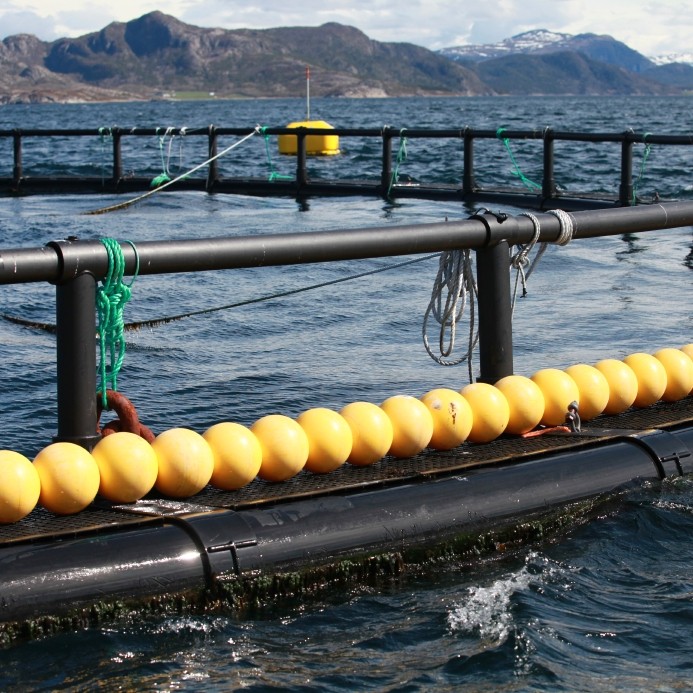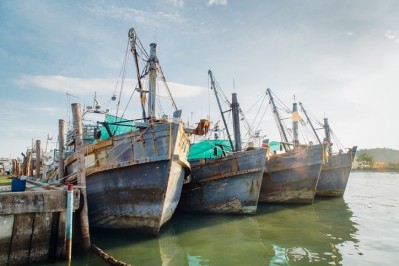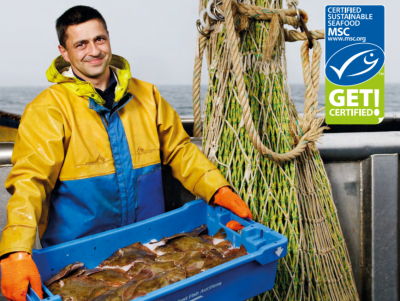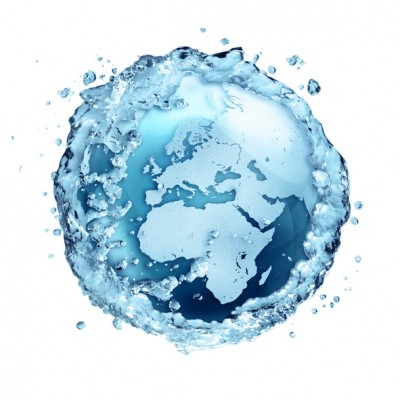Reduction fisheries told ‘can do better’

Whilst 57% of total catch volume from reduction fisheries serving the feed industry was assessed as coming from stocks that are “reasonably well managed”, 43% comes from “less well-managed” fisheries - a performance the SFP branded as “poor…from a sector that seeks to present an image of responsible management”.
“We would like to see feed producers setting higher standards for fisheries, and being more assertive about what they will and won’t accept. We want to see higher levels of engagement by the feed industry, whether that is through preferred procurement or being active in communicating the value of improvement,” Blake Lee-Harwood, communications and strategy director with the SFP, told this publication.
Falling short of certification standards
The SFP’s review also reported that only 18% of the catch from fisheries studied in this sector would meet the requirements of feed for Aquaculture Stewardship Council (ASC) certified farms.
“This is highly regrettable and places great pressure on aquaculture producers and retailers that wish to see certified product in the marketplace,” wrote the report’s authors.
Just under 4% of total catch volume came from stocks in “very good condition”, and this corresponded to a single fishery: Antarctic krill in the Atlantic Southern Ocean.
Study of 20 fisheries
To compile its Sustainabililty Overview 2016, the SFP studied the 20 fisheries in the Eastern Pacific and Atlantic that feed companies said “mattered” to them. The majority of the fisheries were South American (accounting for 49% of catch), followed by European (29% of total catch) and northwest African (11% of total catch), and between them, catch in excess of 7.8 million tons annually.
Most of the catch comes from a few very important stocks, with ten stocks accounting for 90% of the total catch. These include the Peruvian and Chilean anchoveta fisheries, Northeast Atlantic blue whiting, the northwest African sardine fisheries, Chilean Araucanian herring, Icelandic capelin,
Chilean jack mackerel, the US Gulf menhaden fishery (Gulf of Mexico), and the Antarctic krill fishery.
Four of the 20 fisheries had improved their status since 2015, according to the report. These were the North Sea Norway pout, the Dogger Bank lesser sand-eel, the Northwest Africa southern stock and the Northwest Africa central stock. Two fisheries - Chilean Araucanian herring and Northwest Atlantic menhaden - decreased in their sustainability rating.
Industry responds
Dr Neil Auchterlonie, technical director at IFFO, the marine ingredients organization, responded on this point, saying: “It is encouraging to see an overall improvement in the SFP scoring of these fisheries, with four being upgraded to a higher category than allocated in 2015. Although two fisheries dropped a grade, one of these (Atlantic Menhaden) was confirmed as being well managed but, on SFP’s criteria, did not quite reach the recommended biomass level.”
He pointed to the latest advice from the Atlantic States Marine Fisheries Commission (ASMFC) that “the coastwide Atlantic menhaden quota can be substantially raised without impacting the sustainability of the species”.
He also added that while these scores provide a useful guide, environmental factors that are taken into account by fishery managers when setting harvest control rules are not considered by SFP when setting the final score.
“The reduction fish industry has already made significant steps towards better fishery management, with over 40% of the global production being certified under an independently governed and audited scheme, a higher percentage than seen in any other marine fish sector. IFFO is sponsoring further research into ecosystem based management for these fisheries and there is also work underway to address the more complex challenges of multi-species fisheries,” Dr Aucterlonie said.
Asian fisheries “dreadful”
Although South East Asian fisheries generated substantial volumes of fishmeal, the report did not cover this region’s fisheries due to limited data availability. However with low governance and no pressure to improve sustainability from further up the supply chain, these fisheries would not stand up well to scrutiny, according to Lee-Harwood.
“If I had to make regional generalizations, I would say the fisheries from the North Atlantic are improving and have taken steps forward in recent years; the fisheries around South America are static and have problems getting their heads round sustainability; and the fisheries in Asia are pretty dreadful,” he said.
He cited the lack of pressure from retailers and food producers as a contributing factor in regions where fisheries’ sustainability records were poor.
“The supply chain is crucial for making fisheries improve. For example, the Chinese pork industry uses a lot of fishmeal, but exercises no pressure in terms of sustainability because it is simply not on the agenda. By contrast, in Europe and the US there is far more pressure; retailers are interested, well briefed and active in communicating what they expect down the supply chain.”
Report recommendations
In order to improve the standard of sustainability management within fisheries, the SFP report called for feed manufacturers to “communicate with the producers of fishmeal and fish oil concerning the urgent need for fishery improvement projects in key regions”.
“Such improvements should include fisheries management, wider ecosystem concerns, and the public availability of data,” wrote the report’s authors.
A second recommendation was that aquaculture feed manufacturers should adopt procurement specifications that require aquaculture feeds only contain fishmeal and fish oil from fisheries that are either certified to the Marine Stewardship Council standard or in a FIP (“basic” or “comprehensive” as defined by the Conservation Alliance for Seafood Solutions).














